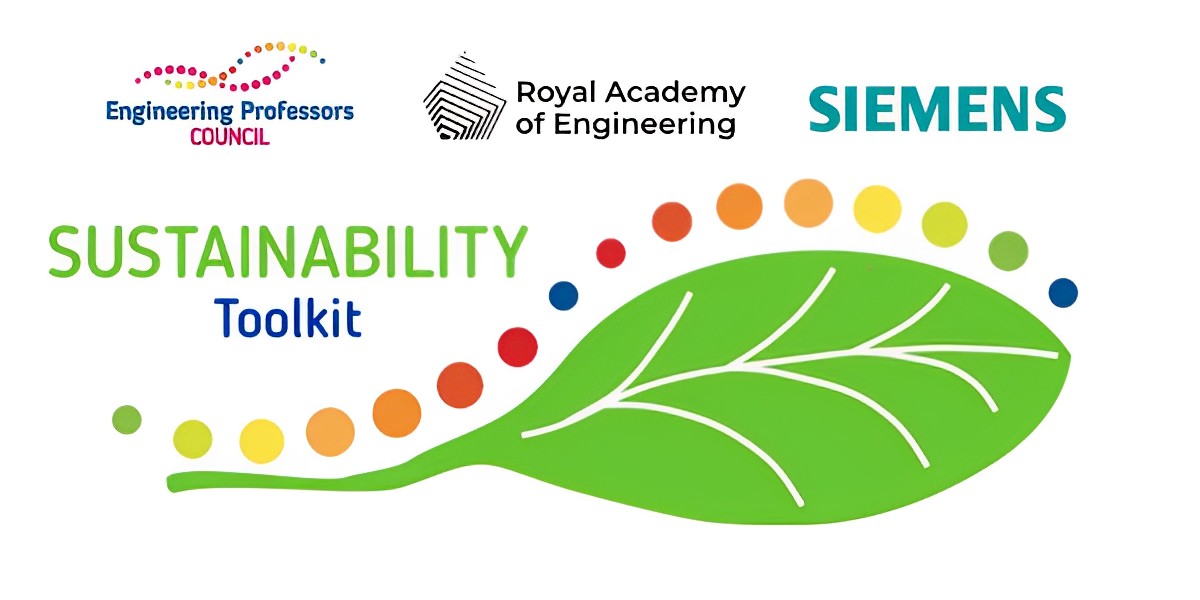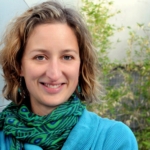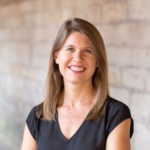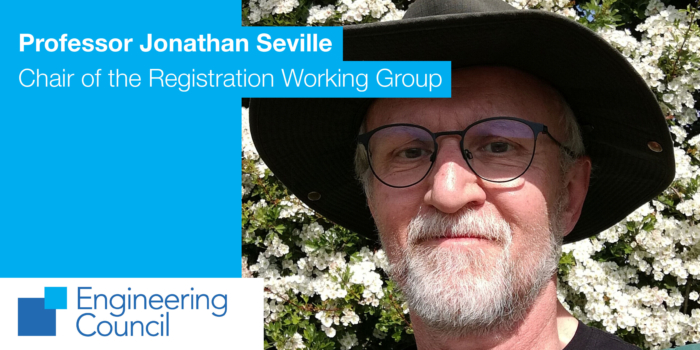Join our webinar as we unveil our new Sustainability Toolkit, showcasing its wealth of resources and demonstrating how they can assist engineering educators in seamlessly integrating sustainability content into their teaching curriculum.

Webinar: Introducing the Sustainability Toolkit
Online event freeDeveloped in collaboration with Siemens and the Royal Academy of Engineering, the Sustainability Toolkit serves as a valuable resource for educators working in engineering higher education.
The new toolkit comprises 12 guidance articles, 18 teaching resources including 5 case studies, and a repository of links to sustainability communities and networks that promote collaborative efforts. It will serve as an openly accessible platform where users can contribute their own resources.
This event is free and open to both EPC members and non-members.
Please see the schedule for this event, below.

Cindy Anderson (she/her/hers) is the founder and CEO of Alula Consulting and is a sustainability consultant. Cindy specializes in innovative sustainability- and online-focused research and curriculum projects for academic institutions, non-profits, government and corporations.
Cindy has taught thousands of people through courses and workshops, around the world and online, in the fields of biology, sustainability and biomimicry. She is honored to be a collaborative partner on the Engineering for One Planet (EOP) initiative since its inception and serves as a Strategy Consultant for EOP. She is co-author of the EOP Framework and new framework companion teaching guides, and active EOP Network Member.
Cindy holds a MS from Oregon State University, a MEd from Griffith University (Queensland, Australia), and a BSc in biology from the University of Guelph (Ontario, Canada).
Cindy has taught thousands of people through courses and workshops, around the world and online, in the fields of biology, sustainability and biomimicry. She is honored to be a collaborative partner on the Engineering for One Planet (EOP) initiative since its inception and serves as a Strategy Consultant for EOP. She is co-author of the EOP Framework and new framework companion teaching guides, and active EOP Network Member.
Cindy holds a MS from Oregon State University, a MEd from Griffith University (Queensland, Australia), and a BSc in biology from the University of Guelph (Ontario, Canada).

Sarah Jayne Hitt, Ph.D. SFHEA specialises in the integration of the arts, humanities and social sciences within engineering education, especially focussing on ethics and communication.
She has served as project manager for the EPC’s Ethics and Sustainability Toolkit initiatives, is Transferable Skills Lead for the Centre for Advanced Timber Technology at NMITE and is Visiting Professor in the School of Computing, Engineering, and the Built Environment at Edinburgh Napier University.
She has led national and international workshops on interdisciplinary learning and teaching and worked with academic and industry partners on various engineering education initiatives. She has recent publications in the International Journal of Engineering Education and The Journal of Problem-Based Learning in Higher Education.
She has served as project manager for the EPC’s Ethics and Sustainability Toolkit initiatives, is Transferable Skills Lead for the Centre for Advanced Timber Technology at NMITE and is Visiting Professor in the School of Computing, Engineering, and the Built Environment at Edinburgh Napier University.
She has led national and international workshops on interdisciplinary learning and teaching and worked with academic and industry partners on various engineering education initiatives. She has recent publications in the International Journal of Engineering Education and The Journal of Problem-Based Learning in Higher Education.

As well as his role with the EPC, Johnny Rich is well known across the higher education sector as a high-profile commentator on policy issues as well as the chief executive of student advice and outreach organisation Push, as a consultant working in education and careers, and as an author.
Before joining the EPC, Johnny has already worked on many issues of concern to our members. Over the past 25 years, he led Push’s research – such as on drop-out rates and student debt – which has had direct impacts on policy.
Johnny’s thought leadership, such as his papers for a graduate levy and a national access fund (2018) and on employability (2015) for the Higher Education Policy Institute, have been influential throughout the sector. Policy issues are also a significant part of his consultancy work, along with communications. His clients have included the European Commission, HEFCE, U-Multirank, as well as many universities, recruiters and charities.
He’s a regular speaker at conferences, awards and in schools. In 2013, his novel A Human Script was published.
Before joining the EPC, Johnny has already worked on many issues of concern to our members. Over the past 25 years, he led Push’s research – such as on drop-out rates and student debt – which has had direct impacts on policy.
Johnny’s thought leadership, such as his papers for a graduate levy and a national access fund (2018) and on employability (2015) for the Higher Education Policy Institute, have been influential throughout the sector. Policy issues are also a significant part of his consultancy work, along with communications. His clients have included the European Commission, HEFCE, U-Multirank, as well as many universities, recruiters and charities.
He’s a regular speaker at conferences, awards and in schools. In 2013, his novel A Human Script was published.

Dr. Shah is a Lecturer (Assistant Professor) in Mathematics and Engineering Education at Queen Mary University of London (QMUL) with research interests in applied mathematics (nonlinear dynamics, analytical mechanics and mathematical modelling) as well as mathematics and engineering education pedagogy.
He is also the School Lead for Inclusive Scholarship for the Centre for Academic Inclusion in Science and Engineering (CAISE) at QMUL, the Research Seminars Coordinator, Centre for Research in Engineering and Materials Education (CREME)and a Research Integrity Champion for the Queen Mary Research Integrity Committee (RIC). In addition to this, he is also an Associate Member of the UCL Centre for Engineering Education (CEE) and serves as the Co-Chair of the Ethics Ambassador Community for the Engineering Professors Council (EPC).
He completed his PhD in Applied Mathematics (Nonlinear Dynamics) at University College London (UCL), where he also taught on a wide range of courses in mathematics, physics and engineering for which he received several teaching excellence awards. In addition to this, he is an accredited Fellow (FHEA) of the UK Higher Education Academy and has also been a Guest Mathematics Teacher at the London School of Economics (LSE).
Prior to this, he taught GCSE and A-Level Mathematics as a full-time secondary school teacher at several independent schools across London. He also has an MSc in Mathematical Modelling and Scientific Computing from the University of Oxford (St. Anne’s College) and a BEng in Mechanical Engineering with Business Finance from UCL.
He is also the School Lead for Inclusive Scholarship for the Centre for Academic Inclusion in Science and Engineering (CAISE) at QMUL, the Research Seminars Coordinator, Centre for Research in Engineering and Materials Education (CREME)and a Research Integrity Champion for the Queen Mary Research Integrity Committee (RIC). In addition to this, he is also an Associate Member of the UCL Centre for Engineering Education (CEE) and serves as the Co-Chair of the Ethics Ambassador Community for the Engineering Professors Council (EPC).
He completed his PhD in Applied Mathematics (Nonlinear Dynamics) at University College London (UCL), where he also taught on a wide range of courses in mathematics, physics and engineering for which he received several teaching excellence awards. In addition to this, he is an accredited Fellow (FHEA) of the UK Higher Education Academy and has also been a Guest Mathematics Teacher at the London School of Economics (LSE).
Prior to this, he taught GCSE and A-Level Mathematics as a full-time secondary school teacher at several independent schools across London. He also has an MSc in Mathematical Modelling and Scientific Computing from the University of Oxford (St. Anne’s College) and a BEng in Mechanical Engineering with Business Finance from UCL.

Dr Homeira Shayesteh is a Senior Lecturer in Architecture & BIM at Middlesex University. She received her PhD from Bartlett UCL where she also worked as post-doctoral researcher and design tutor. She was part of the delivery team of Digital Built Britain contributing to the UK government construction strategy. She held an EPSRC Knowledge Exchange Associate Grant with Autodesk looking into BIM and Digital Twin data flow across the construction life cycle. She is passionate about integrating digital innovations and sustainability into curriculum co-design and initiated embedding the UNSDGs on programme level at Middlesex University in 2021. She was runner up for Guardian Education Award in the category of Teaching and Learning Excellence in 2020 and finalist in London Sustainable Construction award in 2020. In addition to research in education of sustainability, her research interest lies in applied data-driven approaches to sustainable, regenerative, and inclusive architecture/urbanism and from the users’ point of view. She has many publications in peered reviewed journals and presented in prestigious conferences such as UK Higher Education Conference and Advance HE Sustainability Symposium.

Senior Director, Expedition Engineering / Researcher, University of Bath / Visiting Professor, University of Cambridge.

Dr. Zhao is Senior Lecturer in Architecture at University of West of England. She gained her PhD at University of Edinburgh. Her research has a focus on investigating the social, technical and organisational changes in the transition to Net Zero in the Housing sector, and their policy implications. Human-centred, place-based approach, as well as co-production and collaboration are the core of her research activities. She is an expert on Passivhaus, occupant behaviour and behaviour change, as well as user engagement and support. She adopts research-based approach to curriculum design and uses gamification and role-play in her teaching.
Expand the sections below to view PDF versions of the presentations from the webinar.
Subscribe
Login
Please login to comment
0 Comments



